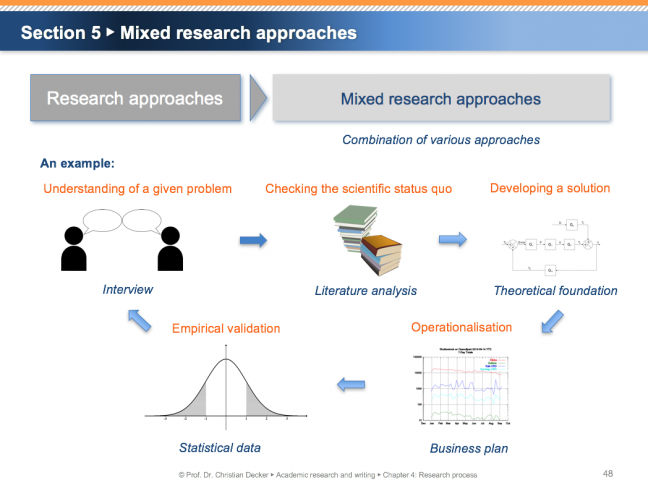The e-learning videos of chapter 4 introduce you to the research process and its cornerstones. Every research project starts with an open-ended indirect research question, which is implicitly or explicitly accompanied by a research hypothesis. Often a research problem is substantiated by an ad-hoc hypothesis, which advances to a working hypothesis and ultimately will be developed into a scientific hypothesis. The logic and quality of hypotheses can differ and determine the success of the research process. Depending on their inner logic, scientific hypotheses can be formulated as cause-effect hypotheses, distribution hypotheses, correlation hypotheses and difference hypotheses. Based on their quality, scientific hypotheses can be differentiated into nomological hypotheses, quasi-nomological hypotheses and statistical hypotheses. The research approach has to match the research problem to be investigated. Literature-based research, theoretical research, developmental research, quantitative research, qualitative research or a mixture of the aforementioned approaches provide means to tackle a research problem at hand. Different academic disciplines favour different scientific styles that predetermine the applicable research approaches. Three general types of scientific styles are introduced and critically reflected: the theoretical solution-driven style, the empirical solution-driven style and the hypothesis-driven style.
Link to e-learning videos: Overview of chapter 4
